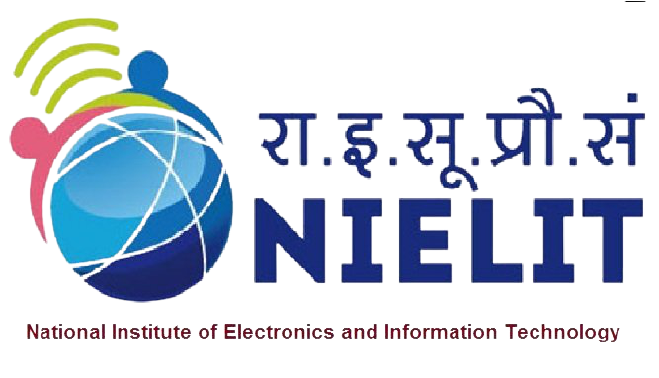DRIT (Radio imaging tech)
Radiology – the name itself might seem intricate and perhaps a bit intimidating. But it’s not as complex as you may think.
Welcome, dear students, to our comprehensive Radiology Course, a journey designed to break down the complexities of medical imaging into understandable concepts that make sense to you. We understand that you’re here because you have a passion for healthcare, a curiosity for science, and a desire to be on the cutting edge of medical technology.
This is a field that merges medicine, technology, and patient care in a unique and meaningful way, enabling healthcare professionals to diagnose and treat patients accurately. It’s fascinating, and it’s vital.
Radiology courses are designed with you in mind, irrespective of your background or level of knowledge. If you’re a student who’s just starting to dip your toes into the realm of healthcare, a professional seeking to upgrade skills, or simply a curious individual looking to understand more about medical imaging, you’ve come to the right place.
This Radiology Course aims to walk you through the basics, starting from the very fundamentals of radiology, moving to different imaging techniques, and then gradually diving into the more nuanced areas.
With each lesson, you’ll grow more confident in understanding the images that radiologists work with every day, images that ultimately contribute to improved patient outcomes. So, let’s embark on this exciting journey together, and turn the seemingly complex world of radiology into something approachable and comprehensible.
What is Radiology?
Radiology is a medical specialty that uses imaging techniques to diagnose and treat diseases within the human body. These techniques include X-rays, computed tomography (CT), magnetic resonance imaging (MRI), ultrasound, nuclear medicine, positron emission tomography (PET), and more.
Radiologists are doctors who interpret the images obtained from these techniques. They can see structures within your body that may not be visible with the naked eye, thus providing crucial information about the body’s internal structures and functions. This information can assist in diagnosing health issues, monitoring the body’s response to treatment, and screening for diseases.
Why Study Radiology?
Studying radiology presents a world of opportunities for individuals interested in a career that merges medicine, technology, and patient care. Here are a few compelling reasons why you should consider studying radiology:
Integral to Healthcare: Radiology is an essential part of the healthcare system. Nearly every patient will require some form of diagnostic imaging during their healthcare journey. As a radiologist, you can contribute to accurate diagnosis and effective treatment plans, playing a pivotal role in patient care.
Cutting-Edge Technology: Radiology is a technologically advanced field. If you’re fascinated by technology and its application in healthcare, studying radiology will immerse you in some of the latest advancements, from AI and machine learning in image interpretation to developments in interventional radiology.
Broad Scope of Practice: Radiology is a wide field with various subspecialties, including pediatric radiology, neuroradiology, interventional radiology, and more. This diversity allows for varied career paths and the opportunity to focus on a specific area of interest.
Problem-Solving Skills: Radiology involves a high degree of problem-solving. Each patient’s case is unique, and interpreting their images can be like solving a puzzle. This aspect of the job can be incredibly rewarding and intellectually stimulating.
Professional Collaboration: Radiologists interact with physicians from nearly all other medical specialties. This level of collaboration can lead to a more comprehensive understanding of medicine and patient care.
Improving Patient Outcomes: Ultimately, the work of radiologists significantly impacts patient outcomes. From early detection of diseases through screenings to guiding interventional procedures, radiologists can make a meaningful difference in patients’ lives.
What Radiologists Do?
Radiologists are medical doctors who specialize in diagnosing and treating diseases and injuries using medical imaging techniques. Here’s a closer look at what they do:
Interpreting Medical Images: The primary responsibility of a radiologist is to interpret images obtained from various modalities, such as X-rays, CT scans, MRIs, ultrasounds, mammograms, or nuclear medicine scans. They analyze these images to identify abnormalities and diagnose diseases.
Consulting with Other Physicians: Radiologists often work closely with other doctors. They provide consultations to help them understand the images and the findings, which in turn aids in deciding the most effective treatment plan for the patient.
Performing Image-Guided Procedures: Interventional radiologists use imaging techniques to guide them in conducting minimally invasive procedures. These may include biopsies (where a small sample of tissue is taken for testing), inserting catheters, or placing stents.
Patient Care: Although much of a radiologist’s work is behind the scenes, they also have direct patient interaction, especially during interventional procedures. They may explain the procedure, answer questions, and ensure the patient is comfortable.
Improving and Innovating Imaging Technology: Many radiologists are also involved in research and teaching. They may work to improve existing imaging technology, develop new techniques, and train the next generation of radiologists.
Radiation Safety and Protection: Radiologists understand the effects of radiation on the body and know how to use imaging devices safely to minimize exposure to patients and medical staff.







 Users Today : 11
Users Today : 11 Users Yesterday : 6
Users Yesterday : 6 Views This Month : 55
Views This Month : 55 Total views : 16736
Total views : 16736 Who's Online : 0
Who's Online : 0